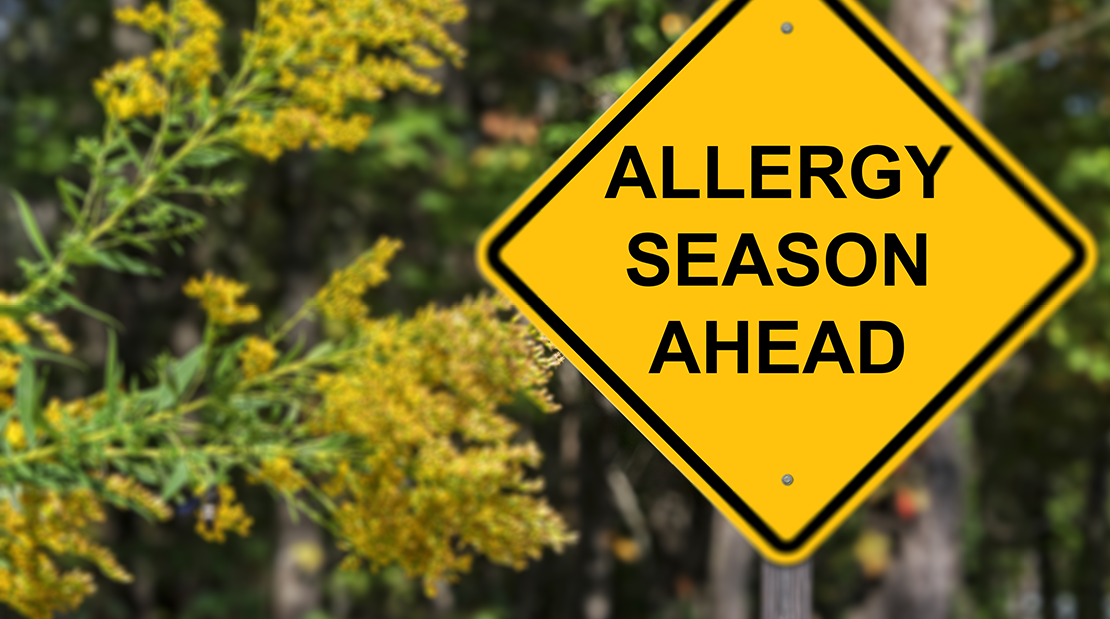
Spotting Seasonal Allergies
Spring is upon us. The sun is shining. The flowers are blooming, and the pollen— well—is active. If you suffer from seasonal allergies, you know first-hand how a field of scenic flowers can turn your day into a beautiful nightmare. You can probably spot the early signs of your own allergic reactions, but what about with your dog?
Like humans, dogs can suffer from a wide range of seasonal allergies. Their symptoms can be as mild as a runny nose, or as severe as eyes that are swollen shut. Although our dogs can’t verbally tell us when they might be suffering, their behavior can give us clues that something is wrong.
Here are some common symptoms that your dog is experiencing season related discomfort:
Itchiness/Hives
Itchiness can be the most common sign that seasonal allergens have taken hold of your dog. Unfortunately, it’s also a common symptom for other underlying problems, as well. Before chucking your dog’s incessant scratching up to pollen, make sure your companion is free of fleas.
If you’ve determined that fleas or other insect bites are not an issue, don’t hesitate to take your dog to the vet. Excessive scratching can lead to skin infections and cause substantial problems down the road. There is a wide range of pharmaceutical remedies to combat pet itchiness, but you should consult your vet to determine the best course of action for your furry friend.
Respiratory
A sure-tell sign of an allergy attack are runny noses and chronic sneezing. These are indicators that something has gone awry in your dog’s respiratory tract. Luckily, these reactions are usually nothing a dose of Benadryl or other antihistamines can’t relieve. Benadryl can be administered to your dog at a dose of 1 milligram per pound of body weight once every 12 hours for temporary relief until you can get to your vet.
Facial Swelling
Like humans, facial and eye swelling may occur when a dog is exposed to airborne allergens. But unless your dog has a history of seasonal allergies, it may be hard to determine if Mother Nature or something more serious is causing the reaction. A simple allergen test conducted by your vet can narrow the scope of the problem and offer insight on appropriate treatments.
Constant Licking and Chewing
Dogs that are experiencing allergy related discomfort will often lick or chew on their paws as a means to soothe reactionary symptoms. This self-remedy will eventually lead to discoloration or bleeding of the paws, and can cause further irritation down the road. Owners should also be on the lookout for any inflammation or swelling in this area. For short-term relief, try a topical treatment like hydrocortisone spray or cream.
Ear Infections
Any type of allergen, either seasonal or food, can cause ear infections. Dogs will show signs of an ear infection by frequently scratching their ears or shaking their heads more than usual. If your dog is exhibiting these types of behavior, take a peak inside your pet’s ears. If you see redness or inflammation, he or she is likely suffering from an ear infection and should be seen by your veterinarian, immediately.
Common Seasonal Allergens
Pollen isn’t the only culprit behind seasonal allergies. Freshly cut grass can also cause you dog’s allergies to flare. You should also be mindful of the insecticides or pesticides used to keep lawns and gardens aesthetically pleasing. If possible, wait until the chemicals dry (about 2-5 hours) before letting your dog play in the grass, and always pay attention to any immediate signs of irritation.
Seasonal allergies don’t have to prevent you and your four-legged friends from basking in the warm weather. Use our tips to help combat these allergens, and start a discussion with your vet about the right course of action. With a watchful eye, and the right remedy, you and your pal will be on track for some serious fun in the sun.

